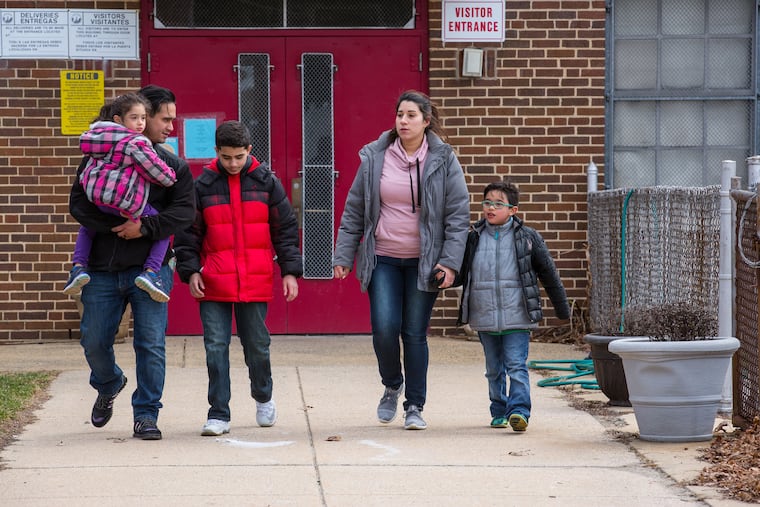Unacceptable condition of Philly’s school buildings sends a tragic signal to students | Opinion
When we invest in our school facilities, we invest in our schoolchildren.

In large cities and in small towns, in coastal states and middle America, in locales “red” and “blue," communities benefit when their public schools thrive and they suffer when their schools struggle. Nowhere is this more evident than in the Commonwealth of Pennsylvania — home to the birthplace of our nation — which also has the unfortunate distinction as having the most inequitable school funding system in the entire country. In the Keystone State, education equity is too often determined by a child’s zip code, and our poorest school districts are in the midst of a facilities crisis that has literally poisoned our schoolchildren and put their lives in danger.
That’s why we have joined the Fund Our Facilities Coalition, a group of elected officials, labor organizations, and community groups, to present a commonsense approach to ensuring that every child — in our state and across the country — has the opportunity to reach his or her fullest potential in healthy schools.
Together, with Philadelphia Delegation Chair Rep. Jason Dawkins; City Council President Darrell L. Clarke; City Council members Helen Gym, Cherelle L. Parker, Mark Squilla and Derek Green; State Sen. Larry Farnese; Pennsylvania State Rep. Elizabeth Fiedler; Philadelphia AFL-CIO President Pat Eiding; and David Masur of the Philadelphia Healthy Schools Initiative, we formed the Fund Our Facilities Coalition with a laser focus: securing the funding we know is necessary to make sure that our school buildings are safe, clean, and comfortable.
In Philadelphia, this is simply not the reality for many schoolchildren. The Philadelphia Inquirer’s Toxic City series told the gut-wrenching stories of students like Dean Pagan, who was poisoned from lead paint in his first-grade classroom. The series featured letters sent to State Sen. Vincent Hughes from fourth graders at Cassidy Elementary, where Chelsea Mungo described her school “like being in a prison or a junkyard.” More than an hour away, elevated lead levels were discovered in Lancaster public schools. And just this September, districts in counties from Lehigh to Westmoreland were forced to delay the start of the school year due to mold hazards in school buildings.
These are unacceptable conditions. We cannot expect our students to thrive and learn under these conditions. We cannot allow our children to walk into classrooms where they may get poisoned. These conditions are a tragic contradiction to the message we should all want to convey to our students: They are valued.
This week, we’ll gather to launch our campaign outside of a neighborhood school in Philadelphia and share our vision for securing a $170 million investment to improve Philadelphia school buildings. Our efforts dovetail with the American Federation of Teachers’ proactive “Fund Our Future” public education campaign. We know real change is possible through our collective efforts.
For years, we have all worked to call attention to these issues. We know that now, more than ever, we must unify in our call for a resolution to this crisis. We’re launching our campaign in Philadelphia, but understand that this is part of a larger movement. Every child in Pennsylvania is constitutionally entitled to a thorough and efficient public education, and every child in the U.S. is entitled to a public education free from discrimination.
When we invest in our school facilities, we invest in our schoolchildren. When children walk into a school each morning and are met not only by their teacher’s smiling face, but also by a healthy, clean, and safe environment in which to learn, we do more than simply tell them they matter. We show them that, as a society, we mean it.
Jerry T. Jordan is president of the Philadelphia Federation of Teachers. State Sen. Vincent Hughes is Democratic chair of the Appropriations Committee.